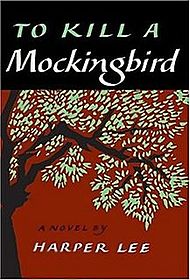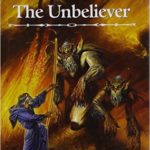From The Writers’ Toolbox: Timeless Questions And Eternal Mysteries
Writers say something. Whether that something is trivial and mundane, or significant and profound, depends on how unafraid they are.
Yes, unafraid. Many writers are afraid they will limit the scope of their book if they place their story firmly in a particular economic or political or religious milieu. They’re afraid if they take sides in a controversial question, they’ll make enemies and lose readers. They might even be afraid that they will fall afoul of the cancel culture crowd or be blackballed by a publisher.
 Some time ago another writer related in an email the gist of a discussion elsewhere regarding the inclusion of particular evangelical Christian denominations and their practices in works of fiction. This writer argued against generic “community churches” and in favor of specific churches such as the First Presbyterian Church or Grace Lutheran or Diamond Bar Baptist. In other words, she advocated including specific churches with known doctrines that might or might not agree with what a reader believes.
Some time ago another writer related in an email the gist of a discussion elsewhere regarding the inclusion of particular evangelical Christian denominations and their practices in works of fiction. This writer argued against generic “community churches” and in favor of specific churches such as the First Presbyterian Church or Grace Lutheran or Diamond Bar Baptist. In other words, she advocated including specific churches with known doctrines that might or might not agree with what a reader believes.
The individual taking the opposite position made a case for widening the audience for a book by painting generic evangelical elements rather than specific ones.
Which is right?
According to a host of writing instructors, writing with specific details brings a place or a person alive. Consequently, writers that steer away from presenting a particular environment or view point, whether religious or political, are actually neutering their story. From agent/writing instructor Donald Maass:
What distinguishes our era? What are its look, buzzwords, issues, and conflicts? Fashion magazines, op-ed pages, sports reporting, rappers, corporate websites, and teen slang are all barometers of our times . . . I don’t mean to suggest dropping in brand names or news events. Those are shallow gimmicks. I do mean that an important component of any novel’s grip on readers’ imaginations is how that novel brings alive its times. (Writing 21st Century Fiction, p. 168 – emphasis mine)
The fear of dating a novel scares off some authors from creating the kind of particular atmosphere that makes a story feel as if it’s anchored in reality. However, stories like The Grapes of Wrath by John Steinbeck bring alive a time and culture through which the author can then say something important and universal.
Some writers also fear taking a stand on a controversial subject or saying something significant about an eternal question. Maass again:
The mysteries of existence are also often avoided in manuscripts. Do you believe in destiny? Do you believe in God? Are our lives random or do they have a purpose? Do you think about these things? Of course you do . . . What about your protagonist? What’s her take on the big questions? Is it pretentious to include them?
Ducking the big questions is easy. So is achieving low impact . . . Is there such a thing as justice when laws are made by fallible humans? Does do no harm have any meaning when medicine becomes guesswork? Is it worth building bridges when their ultimate collapse is guaranteed? Do we teach in schools “truths” that are untrue? Does the accumulation of capital do good or does it corrupt? What are the limits of friendship? Should loyalty last beyond the grave? We read fiction not just for entertainment but for answers to those questions. So answer them. (Writing 21st Century Fiction, p. 169-170 – emphasis mine)
A good many writers are afraid of answering these kinds of questions, thinking that by doing so they’ll come across as preachy—the death knell to fiction, especially Christian fiction.
 Having something to say does not equate with preachy writing. Harper Lee had some specific things to say about prejudice, but I’ve never heard anyone claim To Kill A Mockingbird was preachy. That’s because Ms. Lee didn’t explain what she had to say: she showed it through her characters.
Having something to say does not equate with preachy writing. Harper Lee had some specific things to say about prejudice, but I’ve never heard anyone claim To Kill A Mockingbird was preachy. That’s because Ms. Lee didn’t explain what she had to say: she showed it through her characters.
She didn’t have one of them sum up the meaning of all the events or spell out the ethical implications of why they did what they chose to do. Rather, she created believable people who lived in a specific time with a certain set of problems, and she showed one man and his daughter who lived in contradiction to the societal norm.
Clearly she tackled her subject unafraid, even in the racially charged era of the pre-Civil Rights movement, and the result was a classic story with timeless truths, still being read and studied fifty years later.
Oh, and that author opposed to specific evangelical Christian denominations in fiction? It turns out each of her books is set in the Amish community—quite particular, very unique, and yet apparently a fertile field for stories that speak to readers today.
This article is an edited version of one that originally appeared at Rewrite, Reword, Rework as part of a short series on incorporating themes in fiction.










































Habitual Pinko Linkie thing: